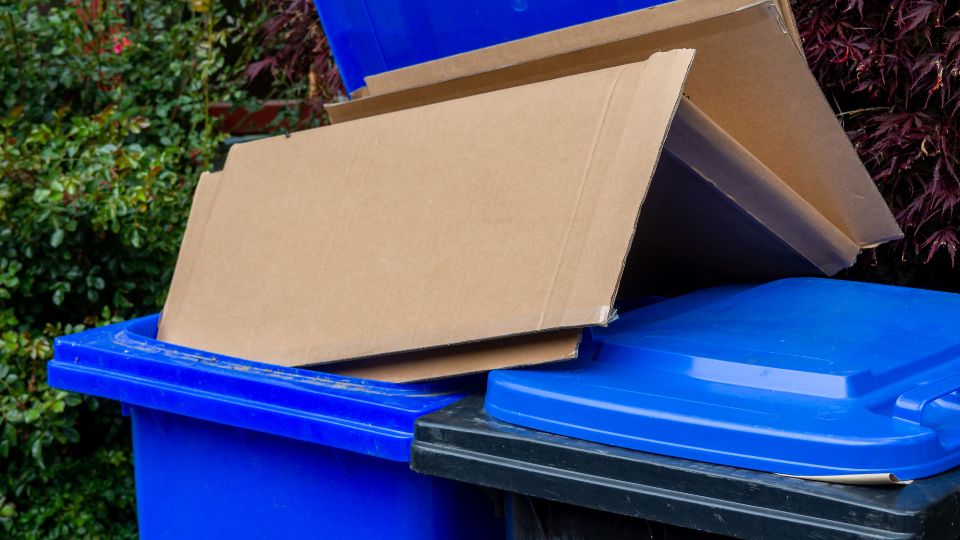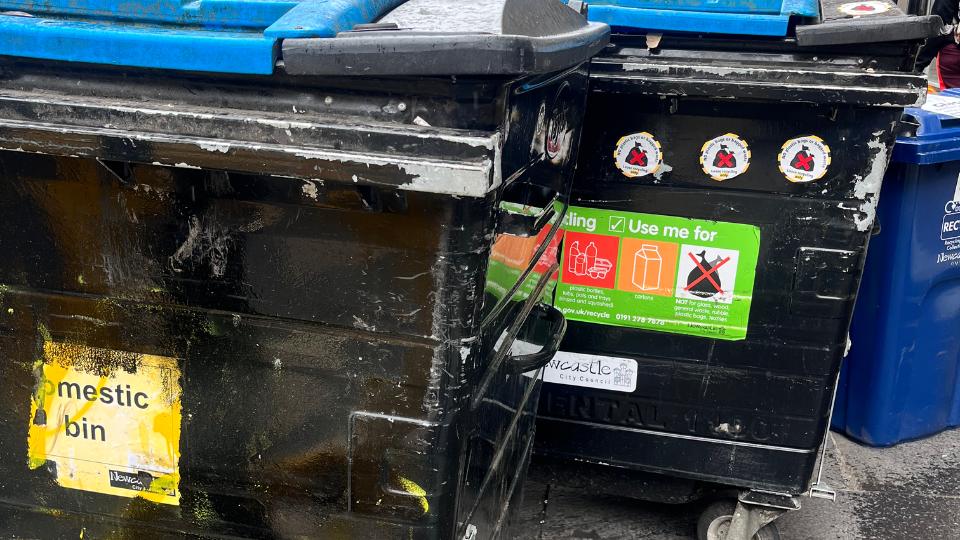
As a business owner, understanding how to reduce waste at work is crucial for environmental sustainability and cost-efficiency. In this guide will explore what general waste is, effective strategies for minimising waste at work, and the significant benefits of reducing general waste in your business.
Table of contents
- What is general waste?
- Ways to reduce general waste in the workplace
- Benefits of reducing general waste
- Conclusion
What is general waste?
General waste refers to the non-recyclable and non-hazardous waste generated in workplaces.
This includes paper, plastic, food scraps, and packaging materials. This waste typically ends up in landfills, contributing to environmental pollution and a decrease in resources.
Ways to reduce general waste in the workplace
Conduct a Waste Audit
Assessing your current waste generation and conducting a thorough waste audit will allow you to identify the types and sources of waste in your workplace.
This will provide valuable insights into areas where waste can be minimised.
Implement a Recycling Program
Providing clearly labeled recycling bins throughout the workplace and educating employees on what can be recycled will be beneficial in reducing general waste.
This simple step can also significantly reduce the amount of waste that is sent to landfills, creating a more sustainable business.
Reduce Paper Use
A transition to digital documentation and communication will minimise paper waste. Encourage double-sided printing for necessary paper documents and reuse scrap paper for notes and drafts.
Embracing digital solutions not only reduces waste but also improves efficiency and accessibility.
Optimise Inventory Management
Effective inventory management is essential for reducing waste associated with overstocking and expired products.
Implement just-in-time inventory practices to minimise excess stock, conduct regular audits to ensure optimal stock levels, and establish return policies with suppliers for unsold goods.

Encourage Reusable Products
Promote the use of reusable containers, utensils, and drinkware in your workplace to create a less wasteful environment. Implement policies to encourage employees to bring their own reusable items.
Choose suppliers that offer products with minimal or recyclable packaging to reduce general waste.
These small changes can make a big difference in reducing general waste for your business.
Compost Organic Waste
A composting program can divert organic waste from general waste bins and create valuable compost for gardens or landscaping.
Placing compost bins in break areas and kitchens will encourage employees to be less wasteful and follow sustainable business practices.
If on site composting isn’t feasible then partnering with a local composting service for organic waste collection is also an option.
Educate and Engage Employees
Engage your employees in waste reduction efforts by providing training sessions on sustainable waste management practices, communicating regularly about the importance of waste reduction, and recognising and rewarding employees who contribute to waste reduction initiatives.
Employee involvement is key to the success of any waste reduction program within a business.
Benefits of reducing general waste
Cost Savings
Reducing general waste can lead to significant cost savings for your business.
By minimising waste generation and optimising resource use, you can reduce disposal costs, lower procurement expenses, and improve overall operational efficiency.
Environmental Impact
Reducing general waste helps protect the environment by conserving natural resources, reducing pollution, and decreasing greenhouse gas emissions.
By diverting waste from landfills and promoting sustainable practices, your business can contribute to a healthier planet for future generations.

Enhanced Corporate Reputation
Demonstrating a commitment to waste reduction and protecting the environment can enhance your business’s reputation among customers, employees, and stakeholders.
Consumers are increasingly conscious of environmental issues and are more likely to support businesses that prioritise sustainability.
Regulatory Compliance
Complying with waste management regulations is essential for avoiding fines and penalties.
By implementing effective waste reduction strategies, you can ensure compliance with environmental regulations and demonstrate your commitment to responsible business practices.
Conclusion
In conclusion, reducing general waste in your business is not only environmentally responsible but also financially beneficial. By implementing the strategies outlined in this guide, you can minimise waste generation, improve operational efficiency, and enjoy the numerous benefits of reducing waste in your workplace.








